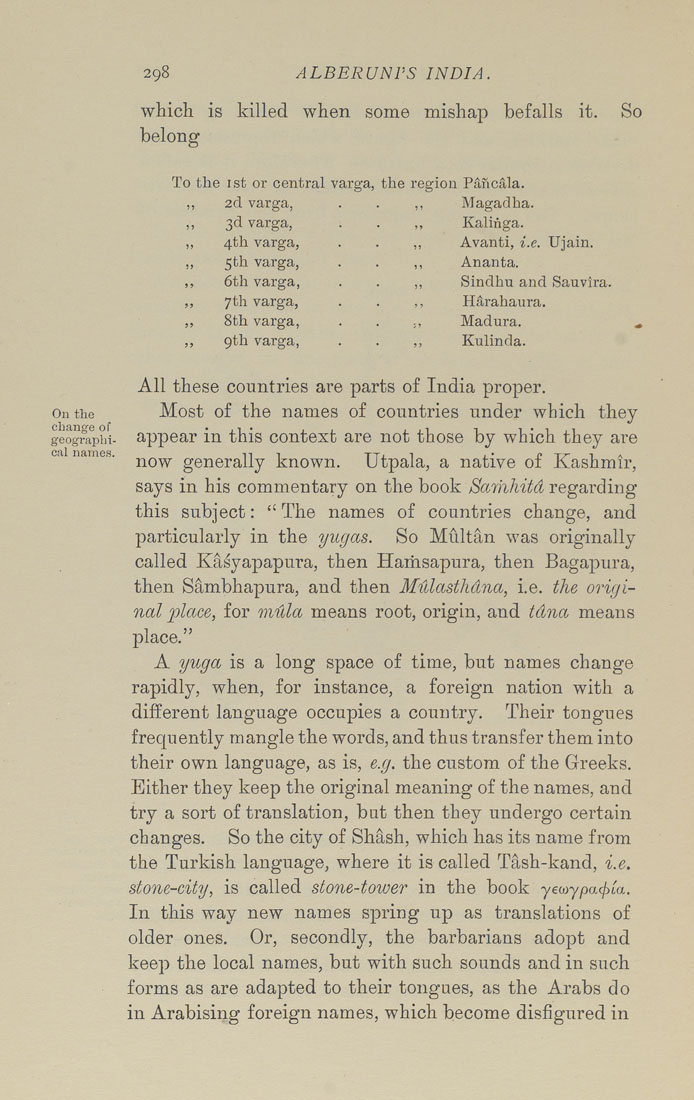ALBERUNPS INDIA.
which is killed when some mishap befalls it. So
belong
On the
change of
geographi¬
cal names.
To the 1st or central varga, the r
2d varga,
3d varga,
4th varga,
5th varga,
6th varga,
7 th varga,
8th varga,
9th varga,
egion Pahcala.
Magadha.
Kalinga.
Avanti, i.e. Ujain.
Ananta.
Sindhu and Sauvira.
Hjlrahaura.
Madura.
Kulinda.
All these countries are parts of India proper.
Most of the names of countries under which they
appear in this context are not those by which they are
now generally known. Utpala, a native of Kashmir,
says in his commentary on the book Sariihitd regarding
this subject: " The names of countries change, and
particularly in the yugas. So Miiltan was originally
called Kasyapapura, then Hariisapura, then Bagapura,
then Sambhapura, and then MUlasthdna, i.e. the origi¬
nal place, for mulct means root, origin, and tdna means
place."
A yuga is a long space of time, but names change
rapidly, when, for instance, a foreign nation with a
different language occupies a country. Their tongues
frequently mangle the words, and thus transfer them into
their own language, as is, e.g. the custom of the Greeks,
Either they keep the original meaning of the names, and
try a sort of translation, but then they undergo certain
changes. So the city of Sliash, which has its name from
the Turkish language, where it is called T^sh-kand, i.e.
stone-city, is called stone-tower in the book yemypacjita.
In this way new names spring up as translations of
older ones. Or, secondly, the barbarians adopt and
keep the local names, but with such sounds and in such
forms as are adapted to their tongues, as the Arabs do
in Arabising foreign names, which become disfigured in
|








